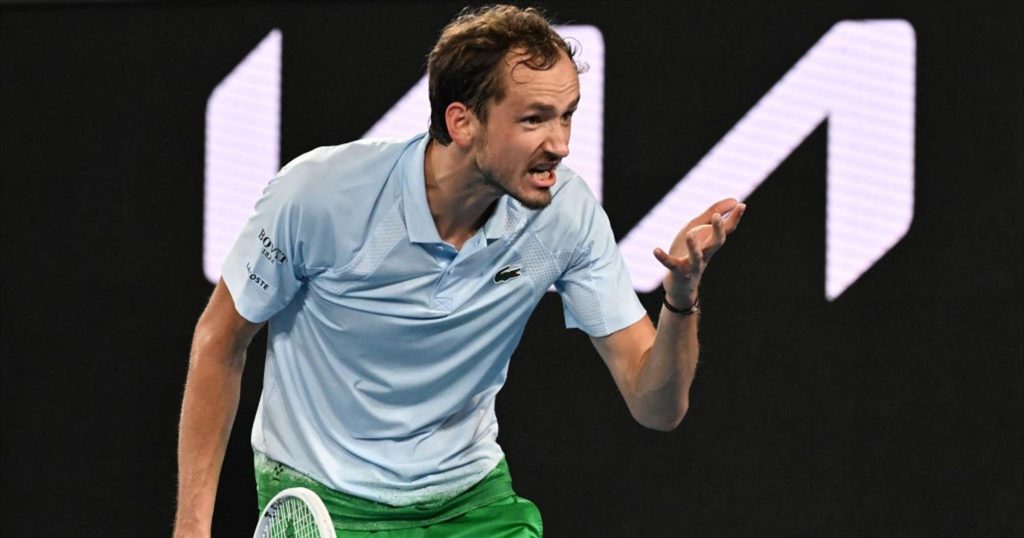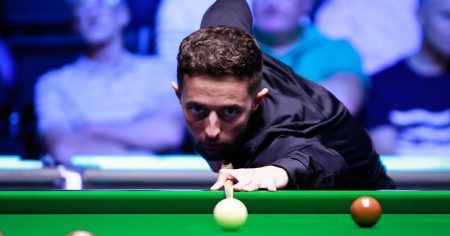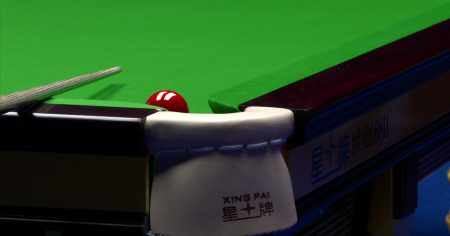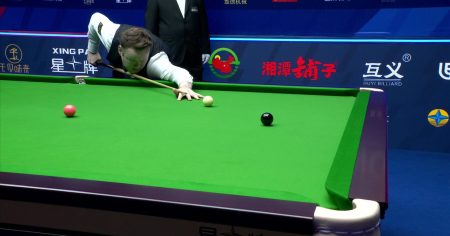Daniil Medvedev’s outburst during his match against Learner Tien, marked by racquet throwing, ball smacking, and a forceful kick directed at a courtside camera, encapsulates the complex interplay of pressure, frustration, and the emotional burdens carried by professional athletes. While the specific triggers for this incident remain unclear, Medvedev’s actions offer a glimpse into the intense mental and emotional landscape of high-stakes competition. This outburst, while undoubtedly unprofessional, provides an opportunity to examine the pressures athletes face, the inadequacy of current support systems, and the need for a more nuanced understanding of emotional regulation in the demanding world of professional sports.
The incident itself, a seemingly brief lapse in composure, reveals a deeper narrative. Medvedev’s tossed racquet, a common expression of frustration in tennis, signifies the immediate, visceral reaction to a perceived setback, possibly a missed shot or a point lost. The smacking of the ball, a more forceful gesture, suggests an escalation of frustration, a physical manifestation of inner turmoil. The culminating act, the kick aimed at the camera, represents a complete loss of control, a redirection of anger towards an inanimate object. Taken together, these actions paint a picture of an athlete struggling to contain his emotions under the immense pressure of professional competition. This incident is not an isolated occurrence; across various sports, athletes succumb to similar emotional outbursts, highlighting the pervasive nature of pressure in the competitive arena.
Medvedev’s outburst raises important questions about the psychological support available to athletes. While physical conditioning and technical training are meticulously planned and executed, the mental and emotional aspects of performance are often overlooked. Athletes operate under immense pressure to perform, facing constant scrutiny from fans, media, sponsors, and their own internal expectations. This relentless pressure can lead to emotional exhaustion and burnout, making athletes vulnerable to emotional outbursts. The lack of readily available and comprehensive mental health resources within the sporting world leaves athletes grappling with these challenges on their own, often resorting to unhealthy coping mechanisms. Medvedev’s actions underscore the urgent need for a more proactive and comprehensive approach to athlete mental health, including providing readily accessible psychological support, developing coping strategies, and fostering a culture of open communication about mental well-being.
Furthermore, this incident sparks a broader conversation about the expectations placed upon professional athletes. They are often viewed as superhuman figures, expected to maintain composure and perform flawlessly under immense pressure. This idealized image ignores the inherent human fallibility and the emotional toll that competition takes. Medvedev’s outburst is a reminder that athletes, despite their extraordinary talents, are not immune to emotional struggles. It is crucial to foster a more realistic and empathetic understanding of athletes as individuals who experience a wide range of emotions, including frustration, anger, and disappointment. Such an understanding would create a more supportive environment where athletes can freely express their emotions without fear of judgment or reprisal.
Moreover, the incident necessitates a re-evaluation of how emotional outbursts in sports are perceived and addressed. While Medvedev’s actions were undoubtedly unprofessional and potentially dangerous, they should not be simply dismissed as isolated incidents of bad behavior. Instead, they should be viewed as opportunities for learning and growth. Rather than focusing solely on punitive measures, sporting bodies should prioritize addressing the root causes of these outbursts, including the immense pressure athletes face and the lack of adequate mental health support. By adopting a more comprehensive approach, the sporting world can create a healthier and more supportive environment that fosters both athletic excellence and emotional well-being.
Ultimately, Daniil Medvedev’s outburst serves as a stark reminder of the human element in professional sports. It underscores the tremendous pressure athletes face, the need for comprehensive mental health support, and the importance of fostering a culture of understanding and empathy. While his actions were undoubtedly unacceptable, they provide a valuable opportunity for reflection and growth, enabling the sporting world to move towards a more supportive and humane approach to athlete well-being. This incident should serve as a catalyst for change, encouraging a deeper understanding of the emotional complexities of professional sports and prompting the development of more effective strategies for supporting athletes’ mental and emotional health.














